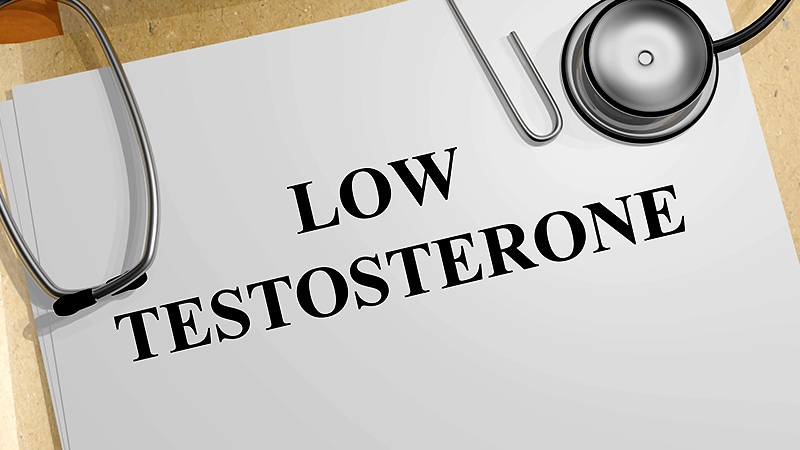Safety and Efficacy of Testosterone Therapy in Men Revealed by Major Clinical Trial
Core Concepts
Testosterone replacement therapy in men with hypogonadism at high risk for heart disease does not increase the risk of adverse cardiac events, but it may lead to other unexpected outcomes.
Abstract
The long-awaited results of the TRAVERSE study shed light on the safety and efficacy of testosterone replacement therapy in men with hypogonadism. Here is a breakdown of the key findings and insights from the study:
Study Overview
TRAVERSE study on testosterone replacement therapy in men with hypogonadism.
Conducted by a consortium of five manufacturers of testosterone products.
Results presented at ENDO 2023: The Endocrine Society Annual Meeting.
Safety Findings
No increased risk of cardiovascular events with testosterone therapy.
Increased rates of atrial fibrillation, acute kidney injury, and pulmonary embolism.
Unexpected 43% increase in fractures with testosterone therapy.
Efficacy Outcomes
Improved sexual function over 2 years of treatment.
Correction or prevention of anemia.
No effect on progression to diabetes or glycemic parameters.
Implications
Expected to change risk-benefit discussions on testosterone therapy.
Safety data apply only to men with documented testosterone deficiency.
Fracture Risk
Testosterone therapy associated with a significant increase in fractures.
Suggests a need for reevaluation of treatment strategies.
Big Trial Reassures on Heart Safety of Testosterone in Men
Stats
Among over 5000 men aged 45-80 years, no increased risk was seen for cardiovascular events with testosterone therapy.
Prostate cancer occurred in 0.5% of patients in the testosterone group.
Pulmonary embolism occurred in 0.9% of the testosterone group.
Nonfatal arrhythmias, atrial fibrillation, and acute kidney injury were significantly higher in the testosterone group.
Quotes
"The community of physicians who prescribe testosterone to men was waiting with bated breath for the TRAVERSE results."
"It's important to emphasize that this is a study of men with bona fide testosterone deficiency and symptoms."
"This begs the question: Should we reorient the way we're thinking about these men?"
Key Insights Distilled From
by Miriam E. Tu... at www.medscape.com 06-16-2023
https://www.medscape.com/viewarticle/993322
Deeper Inquiries
How might the findings of the TRAVERSE study impact current guidelines on testosterone therapy?
The findings of the TRAVERSE study are expected to have a significant impact on current guidelines regarding testosterone therapy for men with hypogonadism. The study's results, which showed no increased risk for adverse cardiac events among middle-aged and older men with hypogonadism at high risk for heart disease, provide reassurance about the safety of testosterone replacement therapy in this population. These results are likely to lead to a revision of guidelines, incorporating the new data on cardiovascular safety, prostate cancer risk, and other outcomes associated with testosterone therapy. Clinicians may now have more confidence in recommending testosterone therapy to men with documented testosterone deficiency and symptoms, knowing that the risks of adverse cardiac events are not as significant as previously thought.
What are the potential implications of the unexpected increase in fractures associated with testosterone therapy?
The unexpected increase in fractures associated with testosterone therapy, as observed in the TRAVERSE study, has significant implications for clinical practice. This finding challenges the assumption that testosterone replacement therapy might have a protective effect on bone health, especially in elderly men and those with severe hypogonadism. The increased fracture risk suggests that clinicians may need to reconsider their approach to managing bone health in men with low testosterone levels and elevated fracture risk. It raises questions about the need to potentially expand the use of antiosteoporotic medications, such as bisphosphonates, to this population to mitigate the increased fracture risk associated with testosterone therapy. Further research is needed to understand the underlying mechanisms contributing to this unexpected outcome and to guide clinical decision-making regarding bone health in men receiving testosterone therapy.
How can future research address the limitations of prior studies on testosterone's effects?
Future research can address the limitations of prior studies on testosterone's effects by conducting large-scale, randomized controlled trials, similar to the TRAVERSE study, with robust methodologies and long-term follow-up. These studies should focus on assessing a wide range of outcomes beyond sexual function, such as cardiovascular events, prostate cancer risk, bone health, and metabolic parameters. By including diverse populations of men with hypogonadism and utilizing validated measures to assess various health outcomes, future research can provide more comprehensive and reliable data on the efficacy and safety of testosterone therapy. Additionally, investigating potential mechanisms underlying unexpected outcomes, such as the increase in fractures observed in the TRAVERSE study, can help improve our understanding of testosterone's effects on different organ systems and guide clinical practice. Collaborative efforts among researchers, clinicians, and industry partners will be essential to address the gaps in knowledge and enhance the evidence base for testosterone therapy in men with hypogonadism.
0
